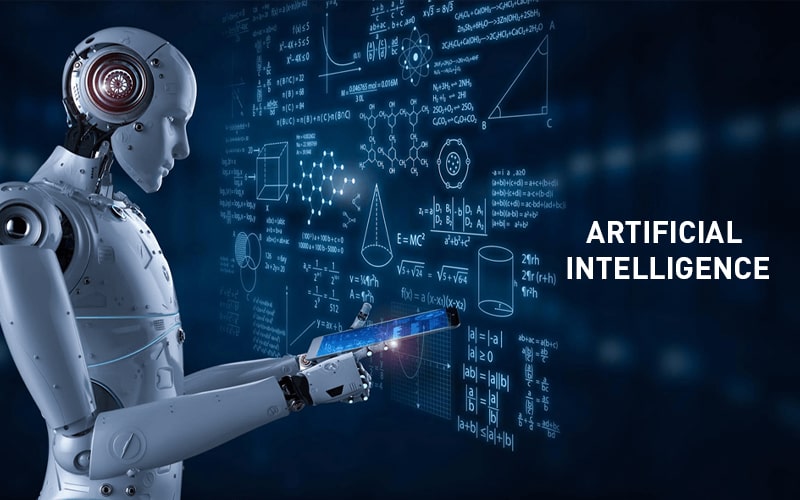
Artificial Intelligence (AI) has become a buzzword in today’s world, permeating various aspects of our lives. From virtual personal assistants like Siri and Alexa to self-driving cars and advanced medical diagnostics, AI is transforming industries and revolutionizing the way we live. But what exactly is artificial intelligence? In simple terms, AI refers to machines or computer systems that possess the ability to mimic human cognitive functions such as learning, problem-solving, and decision-making. It enables machines to perceive their environment, process large amounts of data, and respond or take actions accordingly.
Defining Artificial Intelligence (AI)
Artificial Intelligence (AI) refers to the development of computer systems that can perform tasks that typically require human intelligence. These tasks include speech recognition, decision-making, problem-solving, learning, and understanding natural language. AI allows machines to simulate human-like behavior by analyzing vast amounts of data and making predictions or decisions based on patterns and algorithms.
One key aspect of AI is machine learning, which involves training a computer system to recognize patterns through trial and error. This process enables the system to improve its performance over time without being explicitly programmed for each specific task. Another important component of AI is natural language processing (NLP), which focuses on enabling computers to understand, interpret, and generate human language in a way that is meaningful and contextually appropriate. Overall, artificial intelligence aims to replicate or mimic human cognitive abilities in machines. It has found numerous applications in various fields such as healthcare, finance, transportation, marketing, gaming, and more. As technology advances further and our understanding of AI deepens, we can expect even greater advancements in this field with the potential for significant impact on society.
History of AI development
Artificial intelligence (AI) refers to the development of computer systems that can perform tasks requiring human-like intelligence. The history of AI development dates back to the 1950s when the concept of creating machines capable of mimicking human cognition first emerged. The term “artificial intelligence” itself was coined by John McCarthy in 1956, during a conference at Dartmouth College.
The early years of AI research focused on symbolic or rule-based approaches, where computers were programmed with explicit rules and logic to solve problems. However, progress was slow due to limited computing power and lack of data availability. In the 1960s and 70s, there was a shift towards developing knowledge-based systems that utilized databases filled with expert knowledge. In the 1980s and 90s, as computational power increased and algorithms improved, AI research saw advancements in areas such as natural language processing, computer vision, and machine learning. Machine learning algorithms like neural networks gained popularity for their ability to learn from data without being explicitly programmed. This led to significant breakthroughs in speech recognition, image classification, and other domains.
Overall, the history of AI development has been characterized by continuous innovation and technological advancements that have propelled this field forward. From its humble beginnings as a theoretical concept to today’s practical applications in various industries like healthcare and finance, AI has come a long way in shaping our modern world.
Applications of AI in various industries
Artificial intelligence (AI) refers to the simulation of human intelligence in machines that are programmed to think and learn like humans. It involves the development of computer systems capable of performing tasks that typically require human intelligence, such as speech recognition, problem-solving, decision-making, and visual perception.
In various industries, AI is revolutionizing processes and improving efficiency. For instance, in healthcare, AI is being used for medical imaging analysis to assist radiologists in diagnosing diseases like cancer more accurately. Additionally, AI-powered chatbots are being deployed in customer service departments across different sectors to provide quick and personalized responses to customer queries. Moreover, AI has found significant applications in the financial industry. Machine learning algorithms can analyze vast amounts of data to identify patterns and predict market trends more accurately than humans can. This technology enables financial institutions to offer better investment advice and make informed decisions about risk management strategies.
Overall, AI’s potential extends far beyond these examples; it permeates nearly every industry with its ability to automate tasks, improve precision, enhance decision-making processes, and offer innovative solutions for complex problems.
Key components of AI technology
Artificial intelligence (AI) is a branch of computer science that focuses on creating intelligent machines capable of performing tasks that would typically require human intelligence. AI technology encompasses a wide range of techniques and approaches, with the ultimate goal of developing systems that can learn, reason, perceive, and make decisions autonomously. One key component of AI technology is machine learning, which involves training algorithms to recognize patterns and make predictions or decisions based on data. Machine learning algorithms can be categorized into supervised learning (where the algorithm learns from labeled examples), unsupervised learning (where the algorithm discovers patterns in unlabeled data), and reinforcement learning (where the algorithm learns through trial-and-error interactions with an environment).
Another important component is natural language processing (NLP), which enables machines to understand and interpret human language. NLP allows computers to process text or speech inputs, extract meaning from them, and generate appropriate responses. This technology has led to significant advancements in areas such as virtual assistants, chatbots, sentiment analysis, and machine translation.
Furthermore, computer vision plays a crucial role in AI technology by enabling machines to perceive visual information from images or videos. Computer vision algorithms can analyze and interpret visual data by recognizing objects, faces, gestures, or even identifying specific patterns within an image. This capability has paved the way for applications like facial recognition systems, object detection in autonomous vehicles or surveillance cameras.
Benefits and drawbacks of AI
Artificial intelligence (AI) refers to the ability of computer systems to perform tasks that would typically require human intelligence. The benefits of AI are numerous. Firstly, AI has the potential to greatly enhance productivity and efficiency in various industries. With advanced algorithms and machine learning capabilities, AI systems can automate repetitive tasks, analyze vast amounts of data, and make real-time decisions with minimal human intervention. Additionally, AI has the potential to revolutionize healthcare by improving diagnostics and treatments. By analyzing patient data and medical records, AI algorithms can identify patterns and correlations that may go unnoticed by human physicians. This can lead to more accurate diagnoses, personalized treatment plans, and improved patient outcomes.
Despite its advantages, there are also drawbacks associated with AI. One major concern is the potential for job displacement as automation increases across different sectors. As machines become capable of performing complex tasks once exclusive to humans, certain jobs may become obsolete or significantly reduced in demand. This could result in unemployment for individuals who lack the necessary skills for new roles created by advancements in AI technology.
Furthermore, ethical considerations surrounding AI need careful attention. Issues such as privacy concerns, bias within algorithms leading to discrimination or unfair decision-making processes must be addressed adequately. The development of robust regulations and guidelines is crucial to ensure responsible use of AI technology while safeguarding individual rights and societal well-being.
Ethical concerns surrounding AI development
Artificial Intelligence (AI) refers to the development of computer systems that can perform tasks requiring human intelligence, such as speech recognition, decision-making, problem-solving, and learning. While AI holds immense potential to revolutionize various industries and improve our daily lives, there are significant ethical concerns surrounding its development.
One major concern is the issue of privacy. As AI systems gather vast amounts of data from individuals, there is a risk of this data being misused or exploited for malicious purposes. Additionally, AI algorithms can potentially discriminate against certain groups or individuals based on biased data sets or programming biases. This raises questions about fairness and accountability in decision-making processes conducted by AI systems.
Another ethical concern relates to the impact on employment. As AI technology advances, there is growing apprehension about job displacement and unemployment rates due to automation replacing human labor in various sectors. This raises questions about the responsibility of governments and organizations to ensure a just transition for workers affected by these developments. While artificial intelligence brings numerous benefits and opportunities, it also presents several ethical concerns that need careful consideration during its development and implementation process. Privacy issues related to data collection and usage must be addressed along with ensuring fairness and transparency in algorithmic decision-making processes. Moreover, efforts should be made to mitigate any negative impacts on employment through proactive policies aimed at supporting affected workers during this technological transformation.
Conclusion: The future of artificial intelligence
In conclusion, artificial intelligence refers to the development of computer systems that can perform tasks that typically require human intelligence. It encompasses various technologies such as machine learning, natural language processing, and computer vision. Artificial intelligence has the potential to revolutionize industries and improve our daily lives by automating processes, making predictions, and providing personalized recommendations. However, it also raises ethical concerns and challenges related to privacy, bias, and job displacement. As we continue to advance in this field, it is crucial to ensure responsible AI development and address these issues for a more equitable and sustainable future. Let us embrace the opportunities brought by artificial intelligence while actively seeking solutions to its associated challenges.
ALSO READ / what are data scientists





